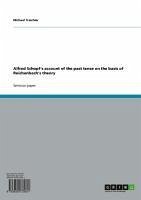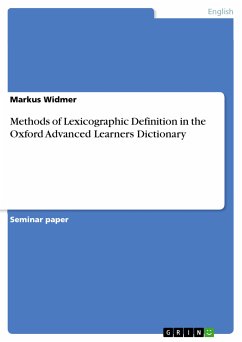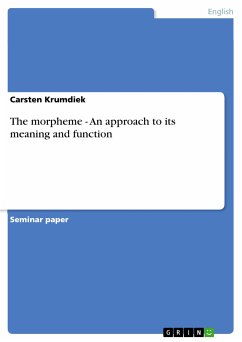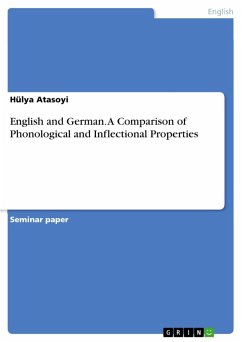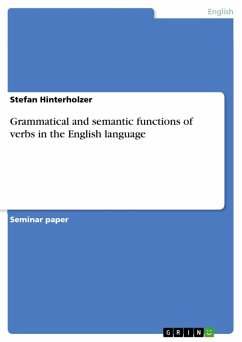
Omitting the "-ed". The tendency of Native Spanish adult learners to mispronounce the English past tense morpheme (eBook, ePUB)
Sofort per Download lieferbar
Statt: 17,95 €**
13,99 €
inkl. MwSt. und vom Verlag festgesetzt.
**Preis der gedruckten Ausgabe (Broschiertes Buch)
Alle Infos zum eBook verschenkenWeitere Ausgaben:

PAYBACK Punkte
0 °P sammeln!
Seminar paper from the year 2015 in the subject English Language and Literature Studies - Linguistics, grade: 1,3, Humboldt-University of Berlin (Anglistik und Amerikanistik), course: Language Acquisition, language: English, abstract: Native Spanish speakers tend to mispronounce or to omit the -ed morpheme when it comes to regular English verbs in simple past. (example: managed, arranged, crowded). It is important to remind oneself of the fact that "[t]he basic morphological unit, however, is not the word, but the morpheme [...], the smallest meaning-bearing unit of a language" (Kortmann, Bern...
Seminar paper from the year 2015 in the subject English Language and Literature Studies - Linguistics, grade: 1,3, Humboldt-University of Berlin (Anglistik und Amerikanistik), course: Language Acquisition, language: English, abstract: Native Spanish speakers tend to mispronounce or to omit the -ed morpheme when it comes to regular English verbs in simple past. (example: managed, arranged, crowded). It is important to remind oneself of the fact that "[t]he basic morphological unit, however, is not the word, but the morpheme [...], the smallest meaning-bearing unit of a language" (Kortmann, Bernd. English Linguistics: Essentials). So, when the -ed morpheme is omitted the listener cannot discriminate whether the person speaking is talking in simple present or in simple past. This might lead to confusion and to serious misunderstandings. I personally found that native speakers of Spanish face serious problems when it comes to the pronunciation of English words. In all the months I spent in Spain I somehow thought about those difficulties that occur constantly and when giving English lessons to Spanish teenagers I finally came to the conclusion that I have to investigate at least one aspect of the phenomenon of the mispronunciation of English words by native speakers of Spanish.
Dieser Download kann aus rechtlichen Gründen nur mit Rechnungsadresse in A, B, BG, CY, CZ, D, DK, EW, E, FIN, F, GR, HR, H, IRL, I, LT, L, LR, M, NL, PL, P, R, S, SLO, SK ausgeliefert werden.





